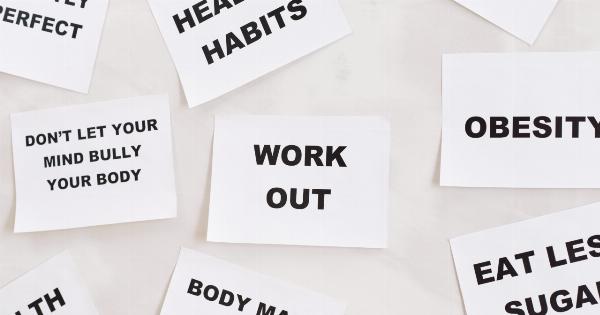Stress is a common occurrence in our daily lives. Our body’s response to stress is designed to help us cope with challenging situations. However, when stress becomes chronic, it can negatively affect our physical, mental, and emotional well-being.
Fortunately, there are many effective ways to manage stress for optimal health. In this article, we will explore some of the best strategies to help you stay calm, cool and collected in the face of life’s many challenges.
Understanding Stress
Stress is a normal response to a perceived threat. When we perceive something as dangerous or threatening, our body responds by releasing cortisol and adrenaline.
These hormones activate our “fight or flight response,” which is designed to help us respond to danger quickly and effectively. When we are faced with a dangerous situation, our heart rate increases, our breathing becomes faster, and our muscles tense up. This response is automatic and occurs without conscious thought.
While stress can be helpful in dangerous situations, it can also cause problems if it becomes chronic. Chronic stress occurs when we are constantly exposed to stressors that our body perceives as a threat.
This can cause our body to remain in a constant state of heightened arousal, which can lead to a range of negative health consequences.
Why is Chronic Stress Harmful?
Chronic stress can have a negative impact on our physical, mental, and emotional well-being. Prolonged exposure to stress can lead to a range of health problems, including:.
- High blood pressure
- Cardiovascular disease
- Decreased immune function
- Anxiety
- Depression
- Insomnia
- Chronic fatigue
It is important to recognize the signs of chronic stress and take steps to manage it to prevent these negative health consequences from occurring.
Effective Strategies for Managing Stress
Fortunately, there are many effective strategies for managing stress. Here are some of the most popular and effective strategies:.
Exercise
Regular exercise is one of the best ways to reduce stress. Exercise helps to release endorphins, which are natural mood-boosters that can help to reduce feelings of stress and anxiety.
It also helps to improve cardiovascular health, which can help to reduce the risk of developing stress-related health problems. Try to engage in at least 30 minutes of moderate-intensity exercise most days of the week to reap the benefits.
Meditation
Meditation is another effective strategy for managing stress. Research has shown that meditation can help to reduce cortisol levels, lower blood pressure, and improve sleep quality.
Consider taking a guided meditation class or using a meditation app like Headspace to get started.
Breathing Exercises
Deep breathing exercises can also be an effective way to manage stress. By taking deep, slow breaths, you can activate the parasympathetic nervous system, which helps to promote feelings of relaxation and calmness.
Consider trying the “4-7-8” breathing technique: inhale for 4 seconds, hold for 7 seconds, and exhale for 8 seconds.
Social Support
Having a strong social support network is also important for managing stress. Spending time with loved ones, participating in social activities, and seeking support from others can all help to reduce feelings of stress and anxiety.
Consider joining a club or group that interests you to meet new people and connect with others.
Healthy Eating
Eating a healthy, balanced diet is also important for managing stress. Eating a diet rich in fruits, vegetables, whole grains, lean protein, and healthy fats can help to support overall health and well-being.
Avoid consuming too much caffeine or alcohol, as these substances can increase feelings of stress and anxiety.
Sleep
Getting enough sleep is also crucial for managing stress. Poor sleep can lead to increased cortisol levels, which can exacerbate feelings of stress and anxiety. Aim for at least 7-8 hours of sleep per night to support optimal health and well-being.
Time Management
Poor time management can also contribute to feelings of stress. To avoid feeling overwhelmed, consider planning out your day and setting realistic goals for yourself. Break large tasks into smaller, more manageable tasks to make them feel less daunting.
Eliminate unnecessary tasks and delegate tasks when possible to free up time and reduce stress.
Seek Professional Help
If you are struggling to manage stress on your own, don’t hesitate to seek professional help. A mental health professional can provide you with effective coping strategies and help you manage stress in a healthy way.
Conclusion
Chronic stress can have negative implications on our physical, mental, and emotional health. By developing effective strategies for managing stress, we can help to prevent these negative health consequences from occurring.
Consider incorporating exercise, meditation, breathing exercises, social support, healthy eating, sleep, time management, and seeking professional help into your stress management routine to promote optimal health and well-being.































